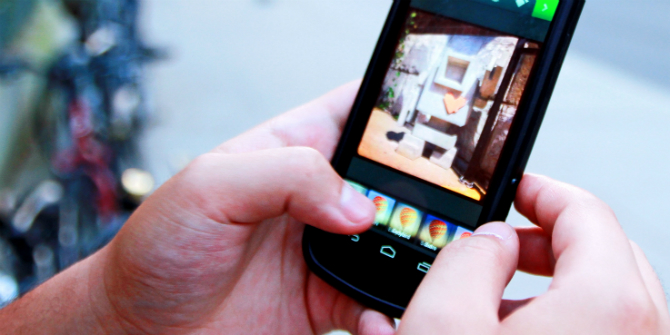As another school year draws to an end, many educators and parents might heave a sigh of relief. The past months have been demanding, often requiring a quick change of gear to accommodate hybrid education, self-isolating children and oscillating mental health. In a series of original contributions and re-posts, P4DF has been following the most prominent issues related to children’s internet use and digital parenting, which we summarise below.
Education and literacy
Once again, children were trying to learn from home, often on an inadequate device and with hard-pressed and under-supporting parents struggling to cope. A few of our contributions focused on the implications for literacy and education. Gianfranco Polizzi, argued that data literacy needs to be promoted via the school curriculum in ways that are part of a more comprehensive approach to the promotion of digital literacy and Becky Parry discussed that play should be centre-stage of the curriculum for literacy learning. Christine Singer, explored whether educational media content can offer some solutions to the challenges incurred by prolonged school closures.
Two contributions discussed the relationship between policy and education. Firstly, David Souter debated the evidence from a much-publicised initiative in developing countries to explore the value of technologies for education and how pitfalls such as technological determinism and lack of sustainability might limit their real-life development potential. Secondly, Marilyn Campbell and Amanda Third discussed the existing evidence on the effects of mobile phone use at school on academic performance. They showed that we actually don’t have sufficient data to justify policies banning students from using their phones at school.
Digital inequalities
As most of the world went into various lockdowns, the internet and social media provided a lifeline for many children. Yet the swift transition to online learning and socialising caught many parents, educators and policymakers off guard, and attention to disadvantaged families came mostly as an afterthought.
Several of our recent blogs explored various aspects of inequality. Dongmiao Zhang and Sonia Livingstone discussed the difficulties of digital parenting and how to close the digital divide by supporting less-educated parents and those from lower socio-economic status households. Alicia Blum-Ross and Sonia Livingstone demonstrated that far from being an equaliser for young people with disabilities, digital technologies are accessed and experienced unequally, suggesting the need for more efforts to close the digital divide. Better Internet for Kids, showed the opportunities and difficulties of creating an inclusive online world for children and young people with disabilities and their views on how the digital environment can be both empowering and challenging.
Digital parenting
“Parents are as diverse as society, and their experiences of the pandemic have surely varied hugely”, we were reminded by Sonia Livingstone in a recent blog. Yet, for many the practices of digital parenting changed during the past year. Parents had to grapple with traditional “screen time” advice at a time when so many everyday activities have gone online and reflect on their role in supporting, brokering or impeding their children’s connected learning and media literacy.
Olaf Kapella offered insights on how parents can maximise the positive aspects of internet use by focusing on online activities (rather than screen time), co-using technologies with their children, respecting children’s privacy, promoting resilience and acting as role models. Paul Hodkinson and Ranjana Das showed that digital engagement can help new fathers to cope with the pressures of new parenting by offering opportunities for distraction, disconnection, information- or support-seeking.
Rights and empowerment
There has been a growing debate over children’s rights in relation to the digital world following the adoption of General Comment 25 by the UN Committee on the Rights of the Child. Sonia Livingstone discussed the significance of the General Comment, why it is a game-changer for realizing children’s rights in a digital world and how a child rights approach can also benefit parents. This is particularly valuable for children from the “COVID generation” who are deeply dissatisfied at their lack of voice in our societies. The recently published draft Online Safety Bill by the UK government gave further opportunity to discuss child rights and Holly Powell-Jones explained the need to educate young people to know their rights online.
A number of blogs demonstrated the positive role of digital technologies in affording opportunities for expression and civic participation for children. John Hartley showed how children use a range of social-media affordances to challenge existing political and intellectual order. Christina Schachtner argued that children’s online self-representations offer an insight into what motivates them. Yael Warshel discussed the important role media may play in mediating and moderating children’s experiences of conflict zones.
Privacy and datafication
As children’s lives, like adults’, became increasingly connected, many concerns focused on the possible negative effects on children’s privacy and data protection. Luci Pangrazio debated why parent control apps might be unsafe for children and the importance of helping children self-regulate and reflect on their online behaviour. Stacey Steinberg focused on the dilemmas surrounding the ethical application of artificial intelligence databases and how they can be used to improve outcomes for children, as well as the potential dangers associated with datafication. Natalia Kucirkova weighed up the pros and cons of the identity changes that accompany our current data-driven lives.
Turning to the role of industry, Sonia Livingstone drew our attention to how education technology brings risks to children’s privacy, given the extensive amount of data collected. Gianfranco Polizzi showed that parents worry that tech companies prioritise profit ahead of promoting positive outcomes for children. Giovanna Mascheroni and Andra Siibak discussed datafication in relation to children’s toys showing how poor design, aggressive marketing strategies, and greedy datafication compromise children’s online experiences, agency and rights.
Wellbeing and resilience
As lives became digital by default, our attention was drawn to the possible impacts of children’s internet use on their wellbeing. Children encounter both risks and opportunities online but their ability to self-regulate their media use and avoid the negative effects makes a difference between experiencing online benefits or harms. Cliff Manning discussed the development of the Digital Resilience Framework and how children and young people can be supported to become resilient users of the internet. Verónica Donoso and Nike Retzmann voiced concerns about children’s decreasing wellbeing as a result of losing face-to-face contact with family and friends.
While some are getting ready to unwind for the summer, others will be focusing on getting the next school year off to a good start. It is important to integrate the lessons learned so far into our parenting and teaching practices, as well as into our educational policies and regulatory decisions if we are to better manage what looks like another challenging year ahead.
If you wish to contribute a blog post on parenting and childhood in a digital world, please get in touch.
First published at www.parenting.digital, this post gives the views of the authors and does not represent the position of the LSE Parenting for a Digital Future blog, nor of the London School of Economics and Political Science.
You are free to republish the text of this article under Creative Commons licence crediting www.parenting.digital and the author of the piece. Please note that images are not included in this blanket licence.
Featured image: photo by Sajad Nori on Unsplash





